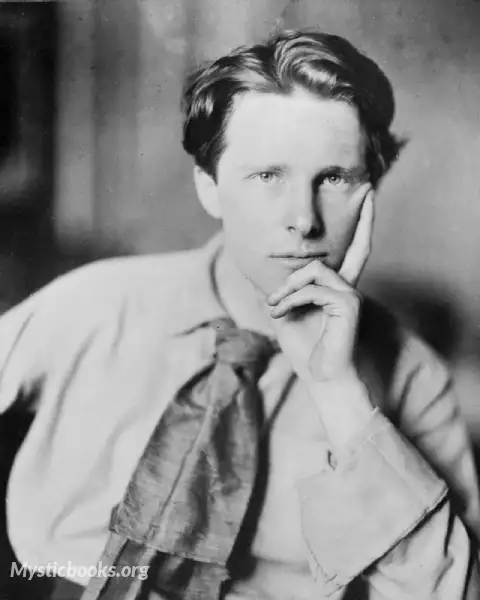
Timeline
Title
Country/Nationality
Rupert Brooke
Rupert Chawner Brooke was an English poet known for his idealistic war sonnets written during the First World War, especially "The Soldier". He was also known for his boyish good looks, which were said to have prompted the Irish poet W. B. Yeats to describe him as "the handsomest young man in England".
Brooke was born at 5 Hillmorton Road, Rugby, Warwickshire, and named after a great-grandfather on his mother's side, Rupert Chawner (1750–1836), a distinguished doctor descended from the regicide Thomas Chaloner. He was the third of four children of William Parker "Willie" Brooke, a schoolmaster (teacher), and Ruth Mary Brooke, née Cotterill, a school matron. Both parents were working at Fettes College in Edinburgh when they met. They married on 18 December 1879. William Parker Brooke had to resign after the couple wed as there was no accommodation there for married masters. The couple then moved to Rugby in Warwickshire where Rupert's father became Master of School Field House at Rugby School a month later. His eldest brother was Richard England "Dick" Brooke (1881–1907), his sister Edith Marjorie Brooke was born in 1885 and died the following year, and his youngest brother was William Alfred Cotterill "Podge" Brooke .
Brooke made friends among the Bloomsbury group of writers, some of whom admired his talent while others were more impressed by his good looks. He also belonged to another literary group known as the Georgian Poets and was one of the most important of the Dymock poets, associated with the Gloucestershire village of Dymock where he spent some time before the war. This group included both Robert Frost and Edward Thomas. He also lived at the Old Vicarage, Grantchester, which stimulated one of his best-known poems, named after the house, written with homesickness while in Berlin in 1912. While travelling in Europe he prepared a thesis, entitled "John Webster and the Elizabethan Drama", which earned him a Fellowship at King's College, Cambridge in March 1913.
Brooke suffered a severe emotional crisis in 1912, caused by sexual confusion (he was bisexual) and jealousy, resulting in the breakdown of his long relationship with Ka Cox (Katherine Laird Cox). Brooke's paranoia that Lytton Strachey had schemed to destroy his relationship with Cox by encouraging her to see Henry Lamb precipitated his break with his Bloomsbury group friends and played a part in his nervous collapse and subsequent rehabilitation trips to Germany.
Brooke sailed with the British Mediterranean Expeditionary Force on 28 February 1915 but developed pneumococcal sepsis from an infected mosquito bite. French surgeons carried out two operations to drain the abscess but he died of septicaemia at 4:46 pm on 23 April 1915, on the French hospital ship Duguay-Trouin, moored in a bay off the Greek island of Skyros in the Aegean Sea, while on his way to the landings at Gallipoli. As the expeditionary force had orders to depart immediately, Brooke was buried at 11 pm in an olive grove on Skyros.
Books by Rupert Brooke
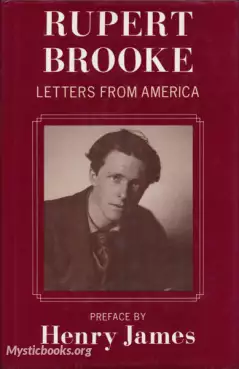
Letters From America
This book is an interesting pre-World War I travelogue of Northern USA and Canada. Brooke's Edwardian English prejudices may prevent some readers from fully enjoying his writing.
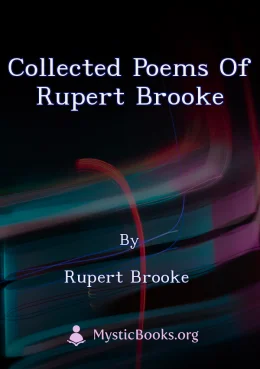
Collected Poems of Rupert Brooke
Rupert Chawner Brooke was an English poet known for his idealistic War Sonnets written during the First World War (especially The Soldier), as well as for his poetry written outside of war, especially The Old Vicarage, Grantchester and The Great Love...
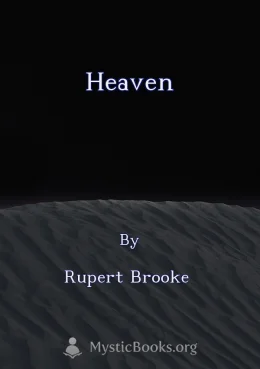
Heaven
LibriVox volunteers bring you 8 recordings of Heaven by Rupert Brooke. This was the weekly poetry project for the week of August 16th, 2008.

Success
'Success' is a poem by Rupert Brooke that explores the themes of success, ambition, and the meaning of life. The poem is written in a free verse style and is characterized by its use of vivid imagery and evocative language. Brooke reflects on the nat...
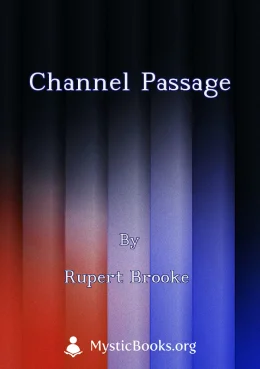
Channel Passage
"Channel Passage" by Rupert Brooke is a poignant and thought-provoking collection of war poetry. The poems explore the complexities of human emotion, the beauty and fragility of nature, and the profound impact of loss. Brooke's vivid imagery and lyri...
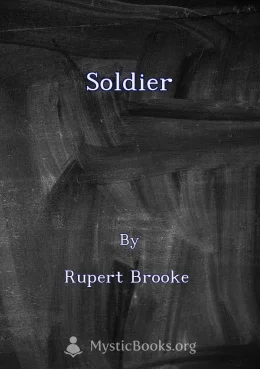
Soldier
The Soldier by Rupert Brooke is a sonnet that was written at the outbreak of World War I in 1914. It is a powerful and moving poem that expresses the speaker's willingness to die for his country. The poem is written in iambic pentameter and is compos...
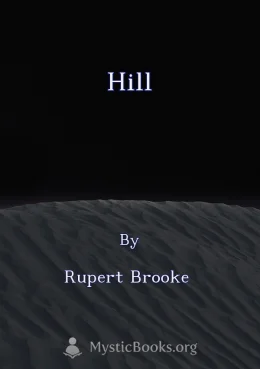
Hill
Rupert Brooke's "The Hill" is a poignant sonnet written during the early stages of World War I. The poem embodies the romanticized and idealistic view of war prevalent at the time, celebrating the sacrifices of soldiers and portraying the battlefield...
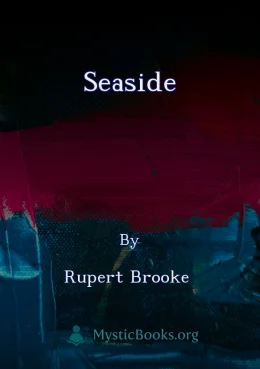
Seaside
Seaside, a collection of poems by Rupert Brooke, is a poignant reflection on the themes of youth, nature, and the beauty of England. These poems, written before the outbreak of the First World War, capture a sense of innocence and optimism that was s...

Call
“The Call” is a collection of poems by Rupert Brooke, primarily known for their idealistic and romantic depiction of war. Brooke's verse, often characterized by lyrical beauty and vivid imagery, explores themes of patriotism, sacrifice, and the idea...
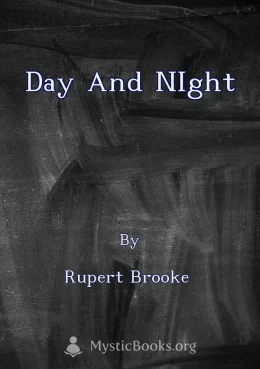
Day and NIght
Rupert Brooke's poems are characterized by their vitality, beauty, and charm. They celebrate life and the beauty of the natural world, and they often express a sense of wonder and awe. Brooke's poems are accessible and enjoyable to read, and they off...
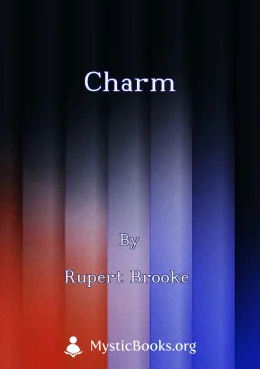
Charm
Rupert Brooke's poetry, particularly his collection "1914 and Other Poems," explores themes of love, youth, beauty, and sacrifice, often through the lens of his experiences during World War I. His poems, infused with a romanticized vision of war, cap...
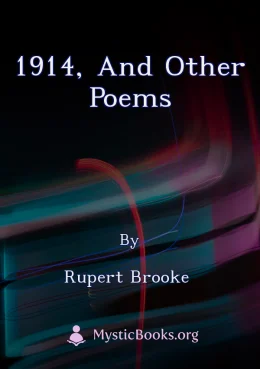
1914, and Other Poems
This collection of poems by Rupert Brooke spans a variety of themes, from the idealistic fervor of war to the beauty of nature and the complexities of love. The poems written during World War I, known for their poignant and evocative language, captur...
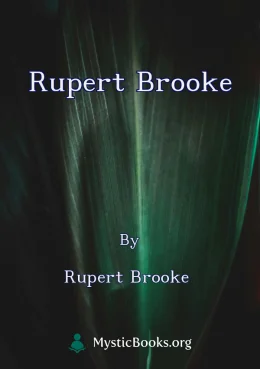
Rupert Brooke
This collection of poems by Rupert Brooke, which was published in 1925, is an encapsulation of the idealistic spirit of the early 20th century. Many of these poems focus on the themes of love, war, and nature with particular emphasis on the beauty, a...

Doubts
“Doubts” by Rupert Brooke is a collection of sonnets exploring themes of war, faith, and the human condition. The poems grapple with the complexities of patriotism, the nature of sacrifice, and the disillusionment that can arise amidst conflict. Br...